Firm Warning from Trump to NATO: Former President Reiterates Strong Stance on Alliance’s Future
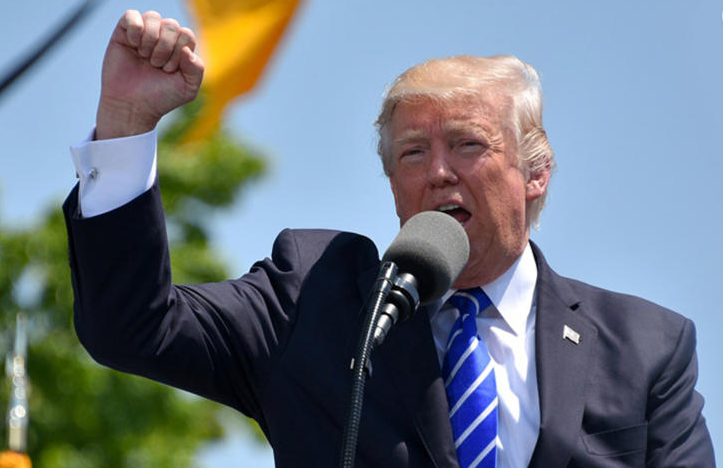
Washington, D.C. — Former President Donald Trump has once again issued a forceful warning to NATO, reiterating his stance on the future of the alliance in a series of statements that have ignited debate among global leaders and analysts alike. In a speech delivered at a private event in Mar-a-Lago, Trump expressed dissatisfaction with NATO’s structure and financial commitments, arguing that unless member nations pay their fair share, the U.S. might reconsider its level of involvement in the organization.
Trump, who famously called NATO “obsolete” during his tenure in the White House, appeared to continue that theme in his latest remarks. His comments are raising eyebrows as NATO faces a range of security challenges, from Russia’s ongoing aggression in Ukraine to the rising threat of China’s growing military presence in the Indo-Pacific. While the U.S. remains committed to NATO, Trump’s warning adds another layer of uncertainty about the alliance’s future, especially as global security dynamics shift.
NATO’s Financial Burden and U.S. Contributions
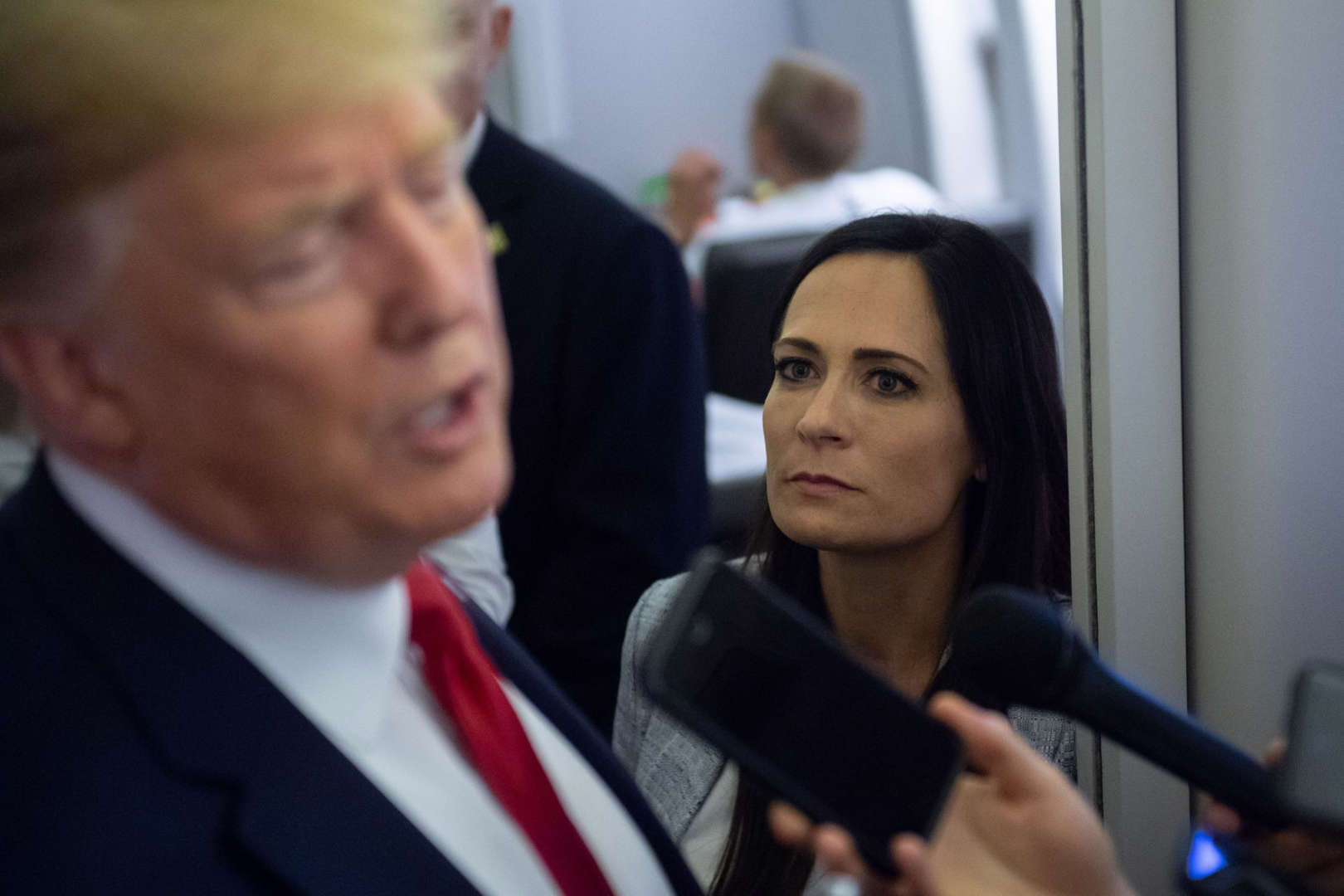
At the heart of Trump’s message is his long-standing critique of NATO’s financing. The former president has frequently criticized the alliance for its reliance on U.S. contributions, arguing that European countries, especially Germany and France, need to significantly increase their defense spending. Trump reiterated this point in his Mar-a-Lago speech, calling on NATO allies to “pull their weight” and honor the commitment to spend at least 2% of their GDP on defense, a target agreed upon by all NATO members but one that many countries, including Germany and Italy, have failed to meet.
“The United States spends far too much on NATO,” Trump said, in a tone that was both assertive and critical. “We protect countries that aren’t doing their part, and we do it at great cost. The time for change is now.”
Trump’s concerns are not without merit. The U.S. currently contributes about 70% of NATO’s funding, which has been a point of contention during his presidency and continues to be an issue under the current Biden administration. However, the broader geopolitical context complicates the debate. Critics argue that despite the financial burden, the U.S. benefits from NATO’s collective security arrangements, especially in Europe, where American forces play a pivotal role in deterring Russian aggression.
Trump, however, maintains that the U.S. should not bear such a disproportionate share of the costs, particularly as European nations expand their own military capabilities. This sentiment is amplified by his “America First” doctrine, which prioritizes U.S. interests above international commitments. “If other countries want to benefit from NATO, they need to step up,” he declared.
NATO and the Russian Threat
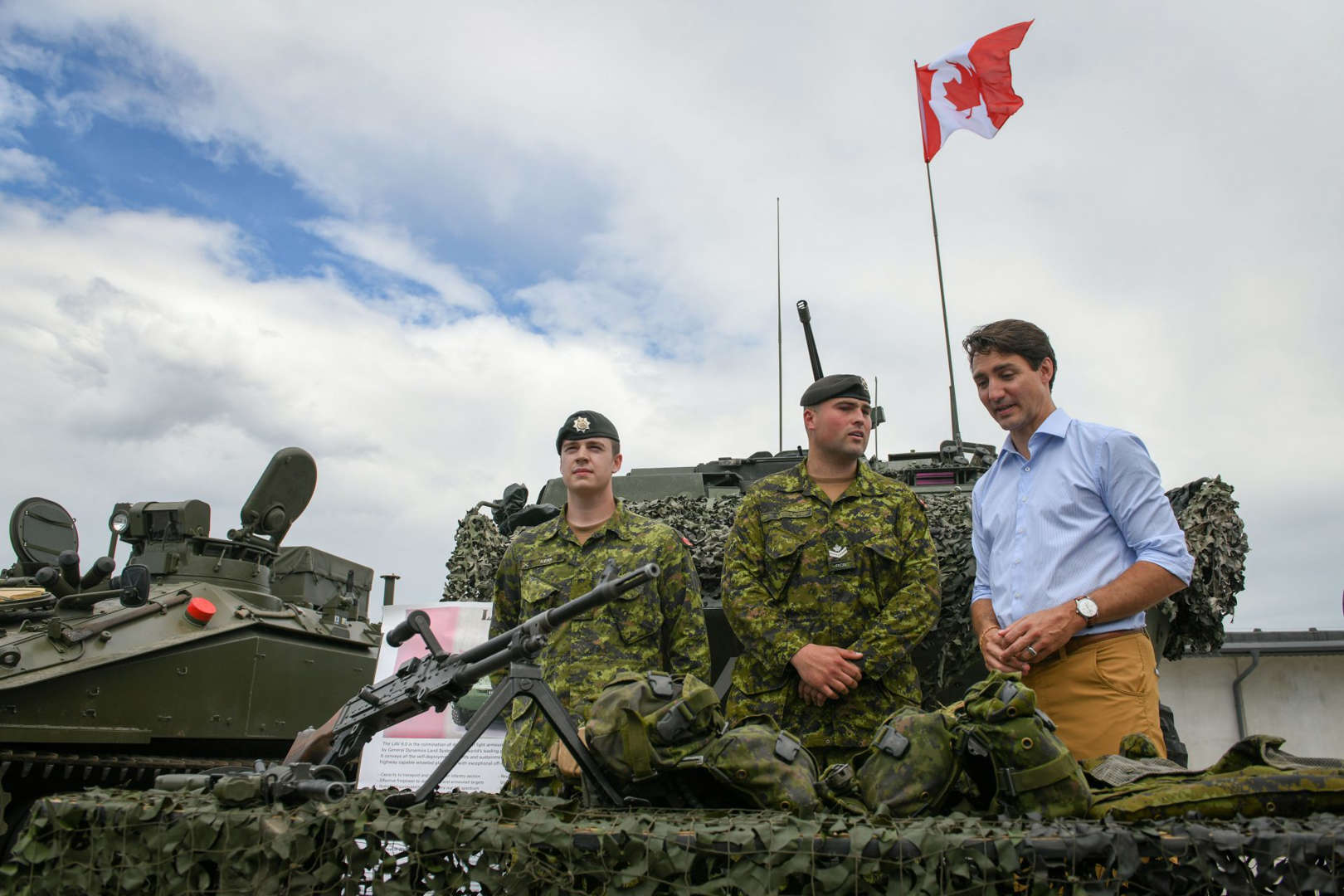
While Trump’s comments on NATO’s financial contributions dominate the headlines, his remarks also touched on the alliance’s response to Russia’s ongoing war in Ukraine. Trump, who was critical of NATO’s involvement in Ukraine during his presidency, suggested that the alliance’s support for Ukraine could lead to dangerous escalation, further straining the already fraught relationship between NATO and Russia.
“Europe needs to handle its own problems,” Trump said. “The U.S. shouldn’t be dragged into another endless conflict over there. NATO should be thinking about its own security, and that doesn’t mean constantly poking the bear in Russia.”
Trump’s comments highlight a key divide between him and many NATO members, who view Russia’s invasion of Ukraine as a direct challenge to the principles of collective security. NATO has been actively supporting Ukraine with weapons, training, and intelligence-sharing, but it has refrained from direct military intervention to avoid triggering a broader war with Russia. Trump’s position, however, reflects his broader skepticism about international entanglements, which he believes often undermine American interests.
Despite this, Trump’s tone on NATO’s role in Ukraine has been less consistent. In a 2023 interview, he stated that, if re-elected, he would negotiate a peace deal to end the war, though many analysts believe his skepticism toward NATO’s current strategy could create tension with European allies who are committed to supporting Ukraine for the long term.
NATO’s Role in the 21st Century
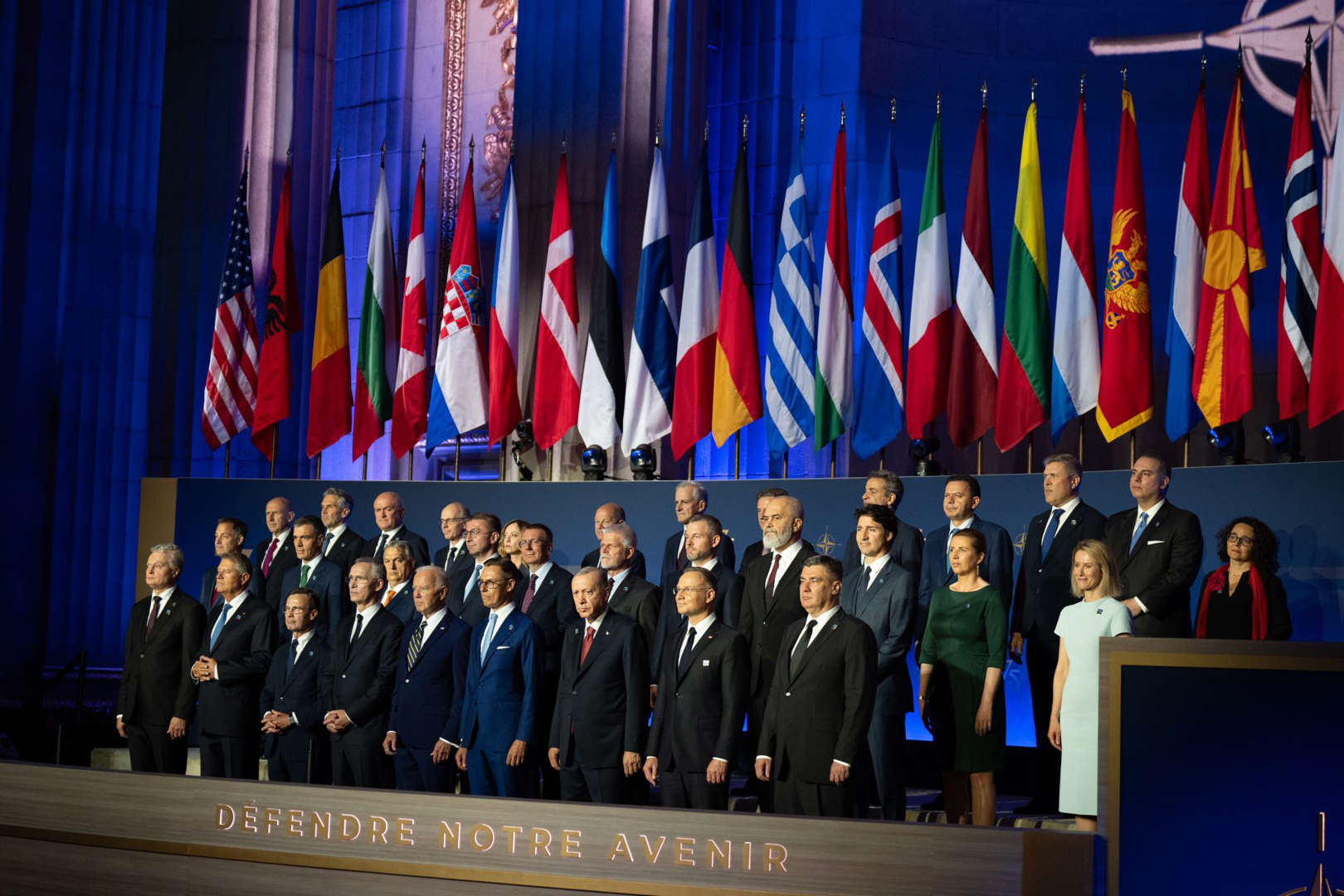
As Trump continues to challenge NATO’s role on the world stage, his remarks raise important questions about the future of the alliance. NATO, founded in 1949 in response to the Soviet Union’s expansionism, has evolved into a broader collective security organization aimed at safeguarding democracy and maintaining stability in the Euro-Atlantic region.
In recent years, the alliance has grappled with multiple challenges, including the war in Ukraine, the resurgence of Russian aggression, and the rise of China as a global military power. Many NATO members have recognized the need for modernization and adaptation to these new threats, with some advocating for a stronger focus on cybersecurity, counterterrorism, and strategic partnerships in the Indo-Pacific.
Trump’s warnings about NATO’s future come amid increasing calls for reform from both within and outside the alliance. Some argue that NATO needs to better address the security concerns of its smaller, Eastern European members, who view Russia as an existential threat. Others believe that NATO’s original purpose may no longer be relevant in the current geopolitical landscape and that the alliance should prioritize nontraditional security concerns, such as climate change, cyber threats, and the growing influence of China.
In his speech, Trump hinted at these shifting priorities, suggesting that NATO should evolve to meet new global challenges. “It’s time for NATO to move into the 21st century,” he remarked. “We can’t keep doing things the old way. The world has changed, and so must NATO.”
Reactions from NATO Allies
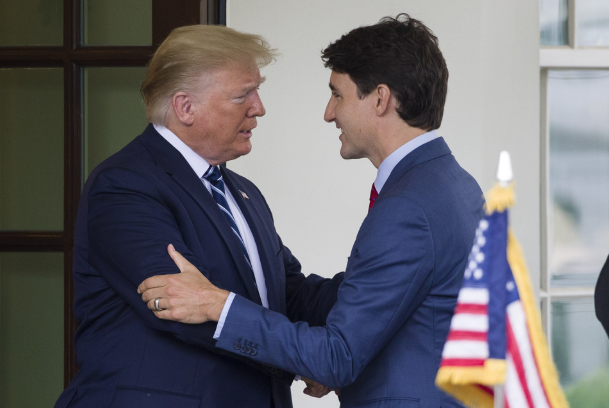
Trump’s comments have sparked mixed reactions from NATO allies. While some European leaders have expressed frustration with his criticism of the alliance, others have echoed his calls for greater defense spending and burden-sharing. German Defense Minister Boris Pistorius, for example, has repeatedly emphasized the importance of fulfilling NATO’s defense spending targets, though he has also argued that the alliance should continue to focus on its collective security obligations.
“We have to make sure that NATO remains strong and united,” Pistorius said in response to Trump’s remarks. “The United States is our most important partner, but we all need to contribute more to ensure that NATO remains the pillar of our security.”
In contrast, some members of NATO’s Eastern flank, including Poland and the Baltic states, have been more vocal in their support for continued U.S. leadership and a robust commitment to NATO’s Article 5, which guarantees collective defense in the event of an attack on any member. These countries are particularly wary of Russia’s intentions and view the U.S. as the key to deterring further aggression.
The Bigger Picture

Trump’s latest remarks underscore a broader debate about the role of the United States in global security. While NATO remains a cornerstone of American foreign policy, Trump’s vision for the future of the alliance is at odds with the multilateral approach championed by many of his predecessors, including President Joe Biden. As the U.S. approaches the 2024 presidential election, Trump’s foreign policy positions—particularly his skepticism toward NATO—will continue to be a topic of intense discussion.
As NATO grapples with its future, Trump’s warning serves as a reminder of the complexities of international alliances and the challenges facing Western security in a rapidly changing world. How NATO adapts to these new realities—and whether it can maintain unity in the face of these challenges—remains to be seen.
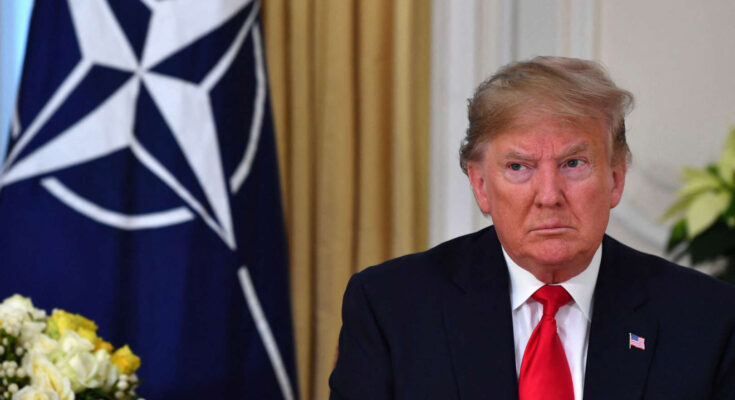



Today, while I was at work, my cousin stole my iPad and tested to see if it can survive a twenty five foot drop, just so she can be a youtube sensation. My iPad is now broken and she has 83 views. I know this is totally off topic but I had to share it with someone!
накрутка просмотров в Телеграм канал закрытый
Heya! I’m at work surfing around your blog from my new iphone 3gs! Just wanted to say I love reading your blog and look forward to all your posts! Keep up the great work!
сайт дл¤ накрутки подписчиков в ётубе
накрутка подписчиков Ютуб бесплатно
накрутка подписчиков Ютуб без заданий
HSBC’s property equity scheme is tailored for homeowners release funds tied up in their property. Should you need to support family members, HSBC delivers a regulated solution with no need to sell your home. Their experienced advisors can guide you with transparency.
Considering releasing equity from your home? Compare top lenders and understand your financial responsibilities before making a decision.
Thinking about a secured loan to manage your financial obligations? Explore your choices and see what solutions may be available to you.
Unlock the value in your property with a secure home equity loan — suitable for covering home improvements, large expenses, or refinancing.
If you’re a property owner looking to get a loan, a secured loan could be a wise option. Leverage better rates by using your home as collateral.
Thinking about releasing equity from your home? Review top lenders and understand your financial responsibilities before making a decision.
Considering releasing equity from your home? Compare top lenders and learn about your financial responsibilities before making a decision.
Release the value in your property with a reliable home equity loan — suitable for covering home improvements, major purchases, or refinancing.
Thinking about releasing equity from your home? Compare top lenders and learn about your rights and obligations before making a decision.
If you’re a homeowner looking to borrow money, a secured loan could be a sensible option. Leverage better rates by using your home as security.
Release the equity in your property with a secure home equity loan — ideal for covering home improvements, major purchases, or debt consolidation.
Explore how a homeowner loan can help you access the money you need without selling your home. Review lenders and tailor a plan that fits your needs.
If you’re a homeowner looking to borrow money, a secured loan could be a wise option. Access better rates by using your home as security.
Home equity release may provide the financial support you’ve been needing. Learn how to use the equity tied up in your home without having to downsize.
Are you considering a loan against your home to manage your financial obligations? Find out more and check what solutions may be available to you.
Discover how a secured loan can help you obtain the money you need without selling your home. Compare lenders and customise a plan that fits your needs.
You may be able to secure larger loans and enjoy better interest rates by using your home’s equity. Find the best current offers today.
If you’re a property owner looking to borrow money, a secured loan could be a sensible option. Leverage better rates by using your home as security.
If you’re a property owner looking to borrow money, a secured loan could be a sensible option. Leverage better rates by using your home as collateral.
Considering releasing equity from your home? Review top lenders and understand your rights and obligations before making a decision.
Unlock the value in your property with a secure home equity loan — suitable for covering home improvements, major purchases, or debt consolidation.
Thinking about a loan against your home to consolidate your financial obligations? Explore your choices and check what solutions may be available to you.
Discover how a secured loan can help you obtain the money you need without selling your home. Compare lenders and tailor a plan that fits your needs.
Uncertain whether a secured loan is right for you? Understand the benefits, such as lower interest rates and increased flexibility.
You may be able to borrow more and enjoy lower monthly repayments by using your home’s equity. Review current offers today.
Release the value in your property with a reliable home equity loan — suitable for funding home improvements, major purchases, or refinancing.
Are you considering a secured loan to manage your debts? Find out more and check what options may be available to you.
Explore how a homeowner loan can help you access the money you need without parting with your home. Compare lenders and tailor a plan that fits your needs.
If you’re a homeowner looking to get a loan, a secured loan could be a sensible option. Leverage better rates by using your home as collateral.